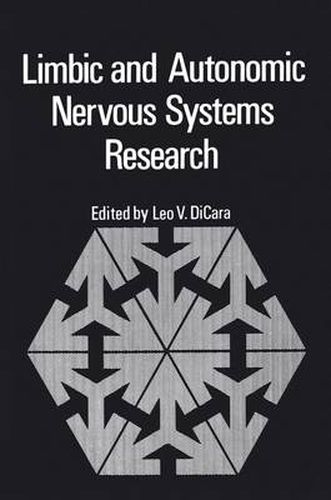Readings Newsletter
Become a Readings Member to make your shopping experience even easier.
Sign in or sign up for free!
You’re not far away from qualifying for FREE standard shipping within Australia
You’ve qualified for FREE standard shipping within Australia
The cart is loading…






This title is printed to order. This book may have been self-published. If so, we cannot guarantee the quality of the content. In the main most books will have gone through the editing process however some may not. We therefore suggest that you be aware of this before ordering this book. If in doubt check either the author or publisher’s details as we are unable to accept any returns unless they are faulty. Please contact us if you have any questions.
The present volume has been written primarily for the advanced student and the mature investigator. The book will be of value to the student because it includes representative research problems on a variety of topics, and significant for the mature investigator, because it can help bring him up to date on specific topics in limbic and autonomic nervous system research, an area which has undergone spectacular growth, particularly during the last ten years. The twelve chapters deal with subject matter that falls loosely into four major subtopics-basic sensory and regulatory mechanisms, emotional processes, cardiovascular processes and learning, and low arousal states-but each chapter represents recent research in one particular area, and stands as a self-contained unit. I am indebted to the many authors and publishers for their aid in granting permission to reproduce quotations, tables, and figures from their works. Specific acknowledgments are made in the text. Leo V. DiCara Ann Arbor Contents Basic Sensory and Regulatory Mechanisms Chapter 1 The Olfactory System and Behavior Bernice M. Wenzel I. Introduction …………………………………. 1 2. Background …………………………………. 2 2.1. Rhinencephalon ………………………….. 2 2.2. The Direct Olfactory System and Its Connections …. 3 2.3. Olfactory Lesions and Nonolfactory Behavior ……. 7 3. Effects of Lesions in the Direct Olfactory System ……… 8 3.1. Orienting and Habituation ………………….. 9 3.2. Activity ………………………………… 12 3.3. Avoidance Learning… .… … … … … … . 13 … … 3.4. Appetitive Learning… … … … … … … . 16 … … .
$9.00 standard shipping within Australia
FREE standard shipping within Australia for orders over $100.00
Express & International shipping calculated at checkout
This title is printed to order. This book may have been self-published. If so, we cannot guarantee the quality of the content. In the main most books will have gone through the editing process however some may not. We therefore suggest that you be aware of this before ordering this book. If in doubt check either the author or publisher’s details as we are unable to accept any returns unless they are faulty. Please contact us if you have any questions.
The present volume has been written primarily for the advanced student and the mature investigator. The book will be of value to the student because it includes representative research problems on a variety of topics, and significant for the mature investigator, because it can help bring him up to date on specific topics in limbic and autonomic nervous system research, an area which has undergone spectacular growth, particularly during the last ten years. The twelve chapters deal with subject matter that falls loosely into four major subtopics-basic sensory and regulatory mechanisms, emotional processes, cardiovascular processes and learning, and low arousal states-but each chapter represents recent research in one particular area, and stands as a self-contained unit. I am indebted to the many authors and publishers for their aid in granting permission to reproduce quotations, tables, and figures from their works. Specific acknowledgments are made in the text. Leo V. DiCara Ann Arbor Contents Basic Sensory and Regulatory Mechanisms Chapter 1 The Olfactory System and Behavior Bernice M. Wenzel I. Introduction …………………………………. 1 2. Background …………………………………. 2 2.1. Rhinencephalon ………………………….. 2 2.2. The Direct Olfactory System and Its Connections …. 3 2.3. Olfactory Lesions and Nonolfactory Behavior ……. 7 3. Effects of Lesions in the Direct Olfactory System ……… 8 3.1. Orienting and Habituation ………………….. 9 3.2. Activity ………………………………… 12 3.3. Avoidance Learning… .… … … … … … . 13 … … 3.4. Appetitive Learning… … … … … … … . 16 … … .